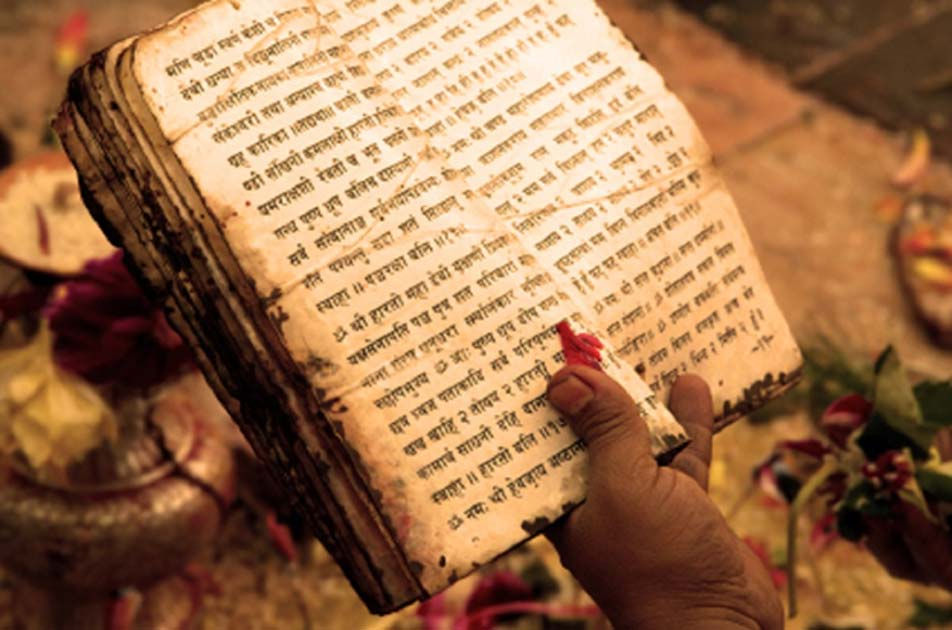
HINDU SCRIPTURES
SHRUTI
► Vedas: The word Veda means “knowledge”. There are four Vedas: Rig, Sama, Yajur and Atharva, of which the Rig Veda is the oldest.
► Upanishads: These texts, numbering over 100, contain an extensive exploration of the methods of understanding the self, God, and the nature of the world.
SMRITI
► Upavedas: The Upavedas consist of four main texts, including:
Ayurveda – science of health and life
Dhanurveda – science of warfare
Gandharvaveda – the study of aesthetics, and delineates art forms
Arthashastra – guidance on public administration, governance, economy, and politics
► Puranas: Stories in the Puranas translate the meanings of the ancient Shruti scriptures and teach them to the masses by explaining the teachings of the Vedas and Upanishads through stories and parables. There are 18 major Puranas (Mahapuranas) and many minor ones (upapuranas).
► Ramayana: This popular epic tells the life story the noble prince named Rama, whom Hindus believe to be an incarnation of the Divine. Prince Rama suffers year of exile and many hardships while destroying powerful demons before returning to rule his kingdom. There are numerous versions of the Ramayana, of which the most well-known are those by the original author Sage Valmiki and the poet-saint Tulsidas.
► Mahabharata: With over 100,000 verses, the Mahabharata is a historical epic, and is the longest poem the world has known. Based on an extended conflict between two branches of the Kaurava family, the Mahabharata is a trove of stories and discourses on the practice of Dharma, including the importance of truth, justice, self sacrifice, and the upholding of Dharma, the need for complete devotion to God, and the ultimate futility of war
► Bhagavad Gita: The Bhagavad Gita is a primary scripture for Hindus. Although it is a tiny part of the Mahabharata and technically classed as a Smriti text, it is traditionally accorded the rank of an Upanishad. It is meant to help one understand that upholding dharma can be challenging, especially in situations where there is not a clear right or wrong.
► Agama Shastras: Ancient and numerous, including many that have been lost over the centuries, these texts deal with practical aspects of devotion and worship, including personal and temple rituals and practices.

